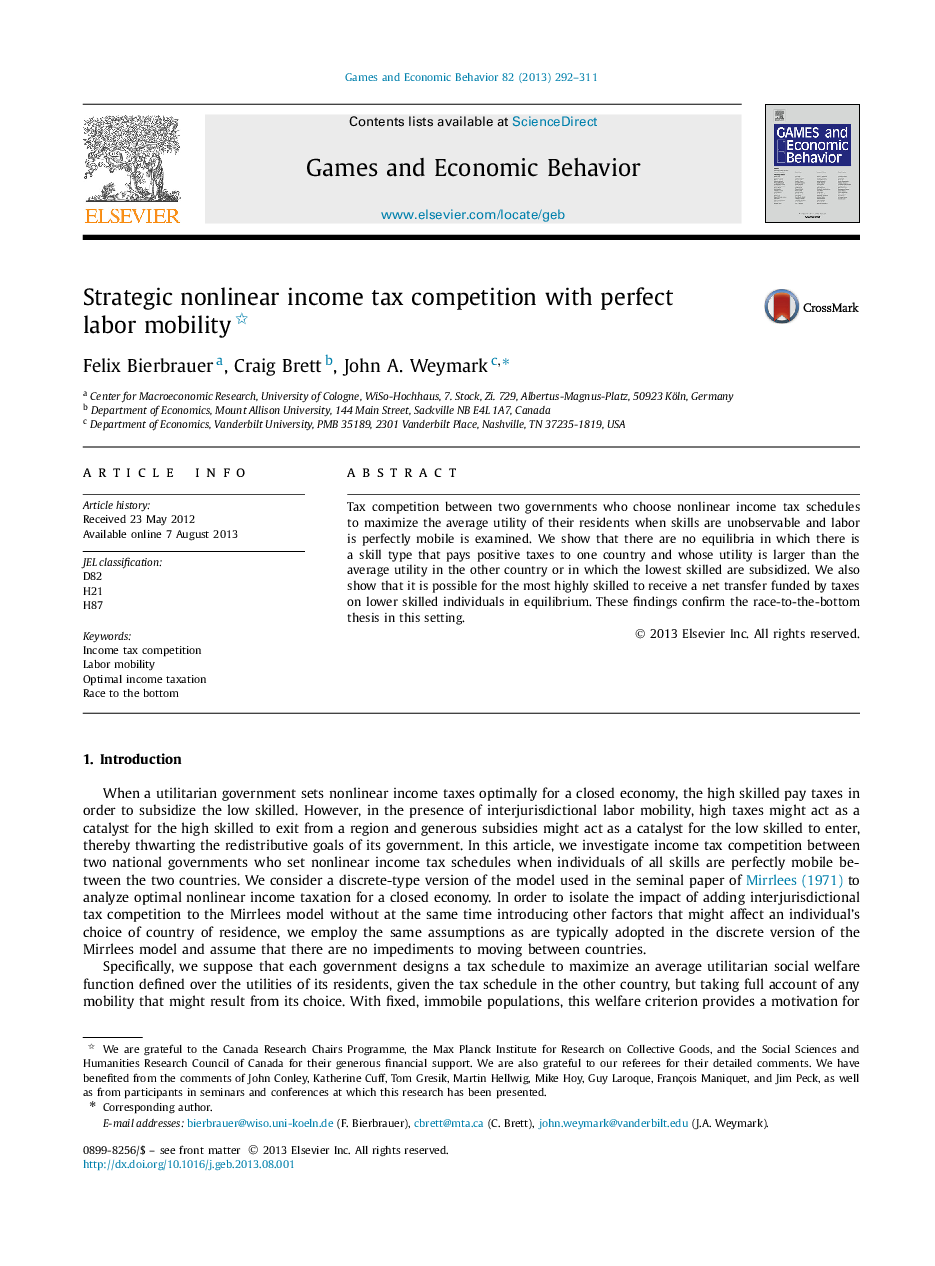| Article ID | Journal | Published Year | Pages | File Type |
|---|---|---|---|---|
| 5071772 | Games and Economic Behavior | 2013 | 20 Pages |
Abstract
Tax competition between two governments who choose nonlinear income tax schedules to maximize the average utility of their residents when skills are unobservable and labor is perfectly mobile is examined. We show that there are no equilibria in which there is a skill type that pays positive taxes to one country and whose utility is larger than the average utility in the other country or in which the lowest skilled are subsidized. We also show that it is possible for the most highly skilled to receive a net transfer funded by taxes on lower skilled individuals in equilibrium. These findings confirm the race-to-the-bottom thesis in this setting.
Related Topics
Social Sciences and Humanities
Economics, Econometrics and Finance
Economics and Econometrics
Authors
Felix Bierbrauer, Craig Brett, John A. Weymark,
